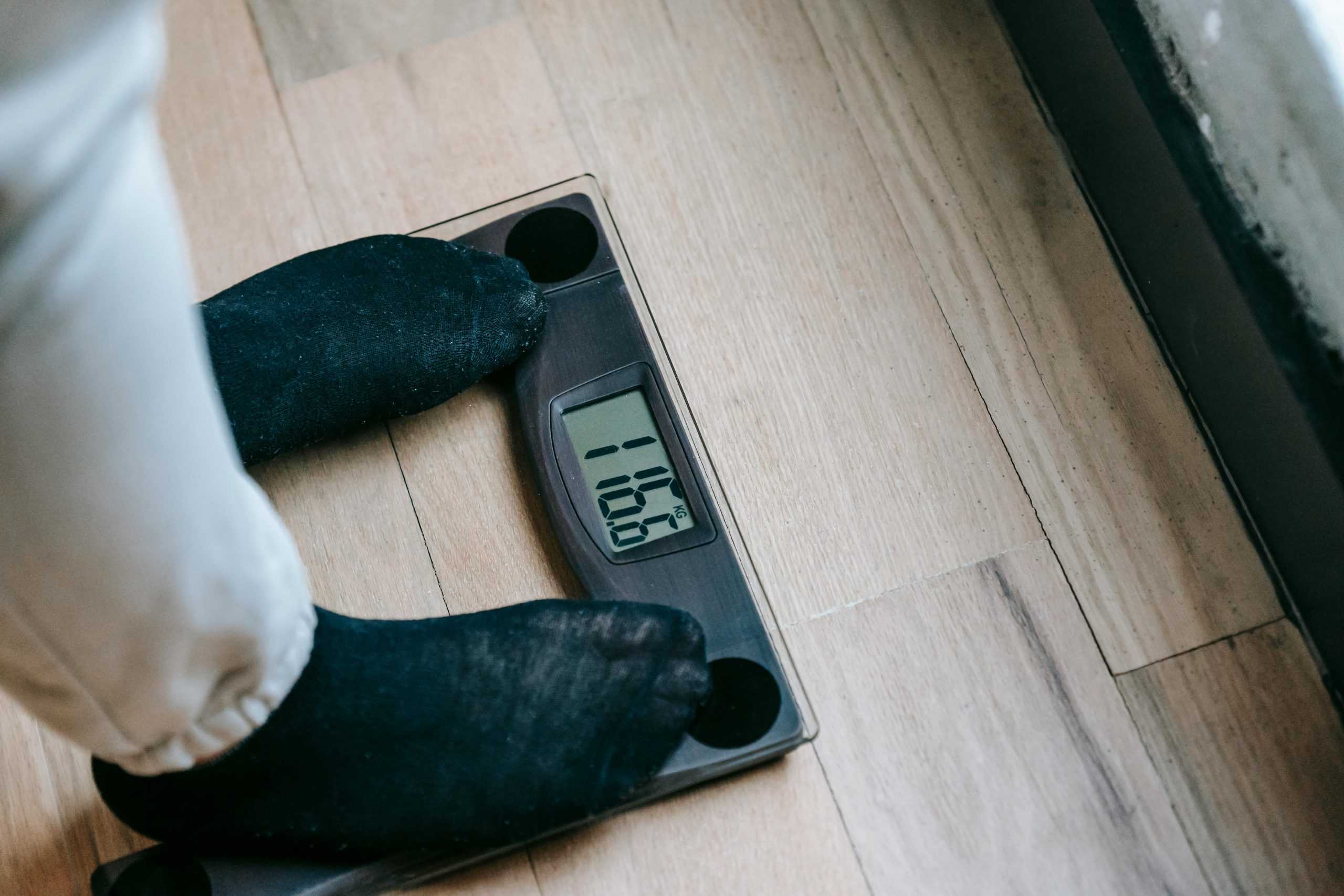If you’re not losing weight on semaglutide, you’re not alone.
This is one of the most common questions people have once they start.
When weight loss is slower than expected, or stalls completely, it usually comes down to dosage, nutrition, muscle loss, underlying metabolic factors, stress, hormones, or medication inconsistency.
This guide breaks down every possible reason semaglutide may not be working, how long results should take, and what you can do to get things moving again.
GET HELP WITH YOUR SEMAGLUTIDE TREATMENT
Why Am I Not Losing Weight on Semaglutide? (Short Answer)
Most people don’t lose weight on semaglutide because the dose isn’t optimized, they’re not eating enough protein, they’re losing muscle instead of fat, their thyroid or hormones are off, stress and cortisol are high, or they have insulin or leptin resistance slowing progress.
Some also respond poorly to inconsistent compounded formulations.
What Normal Weight Loss Looks Like on Semaglutide
Understanding expected results helps you know whether your progress is slow, or perfectly normal.
Typical semaglutide progression:
- Weeks 1–4: Appetite changes begin, but weight loss may be minimal
- Weeks 4–8: Small, steady drops as your dose increases
- Weeks 8–12: More noticeable losses once you reach a therapeutic dose
- After 12 weeks: Most people see their most consistent progress
Clinical research shows weight loss is gradual, not instant and varies based on dose, metabolism, and lifestyle factors.
Reasons Your Weight Loss May Be Slower Than Expected
Let’s take a look at some of the reasons you may not be losing weight or losing weight slower than expected when first starting semaglutide:
1. You Haven’t Been on Semaglutide Long Enough
Semaglutide requires slow dose titration to avoid side effects.
If you’re still early in your dose schedule, results may be mild or inconsistent.
Weight loss may be slower if:
- You just started
- You recently increased your dose
- You’re on a conservative titration schedule
- You’re very sensitive to nausea
It’s normal for early results to be modest until your body adapts.
2. Your Dosage Isn’t Optimized Yet
One of the most common reasons for slow progress is an incorrect dose, either too low or increased too quickly.
- Too low: You may still feel hungry between meals or have minimal appetite reduction.
- Too fast: Excess nausea or low appetite can lead to under-eating and muscle loss, which slows metabolism.
- When to adjust the dose: Most people should reassess their dose every 4–6 weeks. If you’ve been at the same dose for months without results, it may need to be evaluated.
3. Your Nutrition Needs Adjusting (Especially Protein)
Semaglutide reduces appetite, but your body still needs balanced nutrition, especially protein and fiber, to lose fat without losing muscle.
Weight loss slows when:
- Protein intake is low
- Meals are skipped
- Simple carbs replace full meals
- Shakes or “easy foods” dominate
- Fiber is inconsistent
Aim for 25–35g of protein per meal to keep metabolism strong while appetite is reduced.
4. You’re Losing Muscle Instead of Fat
Because appetite decreases, some people unintentionally undereat, causing the body to break down muscle.
Less muscle means slower metabolism which can cause slower weight loss.
Signs you may be losing muscle:
- Feeling weaker
- Clothes fitting differently without scale movement
- Low energy
- Weight loss early on, then a stall
Strong protein intake and strength training 2–3x per week help protect lean mass.
5. Stress, Sleep, and Cortisol Are Blocking Progress
High cortisol makes the body hold onto fat, especially around the belly, even when appetite is low.
Chronic stress can:
- Raise blood sugar
- Increase cravings
- Disrupt sleep
- Slow thyroid function
- Stall fat loss
If stress or sleep has been difficult, semaglutide results often slow down.
6. Your Thyroid or Hormones May Be Off
This is one of the biggest reasons semaglutide doesn’t work as expected.
Hormones play a major role in metabolism, appetite, and fat storage.
If they’re imbalanced, progress can stall even with a perfect dose.
Possible hormone blockers:
- Low thyroid function
- High reverse T3
- Low testosterone
- Low estrogen or progesterone
- Perimenopause or menopause changes
Common symptoms of hormone imbalance:
- Fatigue
- Cold intolerance
- Hair thinning
- Irregular cycles
- Mood changes
- Low libido
- Hard time building muscle
These signs tell you weight loss resistance may be hormonal, not behavioral.
7. You Have Insulin or Leptin Resistance
Semaglutide helps improve insulin levels, but if insulin resistance is severe, weight loss may be slower at first.
Leptin resistance, less commonly discussed, is another hurdle that affects appetite regulation and metabolic signaling.
These conditions often require combined strategies: nutrition changes, strength training, sleep support, and sometimes additional therapies.
8. Compounded Semaglutide May Be Inconsistent
While some compounded versions are effective, others vary in:
- Strength
- Purity
- Stability
If your progress has been unpredictable or you’ve felt “nothing” from compounded doses, the formulation may be part of the issue.
9. Your Body Has Reached a Plateau
Plateaus are normal, even expected, on semaglutide.
They often happen around:
- Dose changes
- Stressful periods
- Hormonal shifts
- Low protein intake
- Low calorie intake
- Reduced activity
A plateau doesn’t mean semaglutide has stopped working, it means your body needs a new stimulus.
10. Your Gut Health Is Affecting Your Metabolism
Your gut affects digestion, blood sugar, inflammation, and nutrient absorption, all of which influence weight loss.
Poor gut health can make even effective medications feel slow.
Signs include bloating, constipation, loose stools, low appetite, or unpredictable hunger cues.
When Semaglutide Is Working, but the Scale Isn’t Moving
This happens more often than people expect.
Here’s why:
1. You’re losing fat but gaining muscle
Strength training can cause recomposition, your body gets smaller, but the scale stays the same.
2. Water retention
Hormones, sodium, stress, and sleep can all shift water weight.
3. Glycogen changes
If carbs or hydration vary day to day, the scale will fluctuate.
4. Digestive slowdown
GLP-1 medications can delay gastric emptying.
If you’re shrinking in inches, clothes fit looser, or body composition is changing, semaglutide is working, even if the scale doesn’t show it yet.
What To Do If You’re Not Losing Weight on Semaglutide (Checklist)
Review these key areas:
- Have you been on the medication long enough?
- Has your dose been evaluated in the last 4–6 weeks?
- Are you eating 25–35g of protein per meal?
- Are you strength training each week?
- Are you skipping meals or under-eating?
- Are stress and sleep consistent?
- Have you had your thyroid, hormones, or cortisol checked?
- Are you using reliable semaglutide?
- Has progress stalled for more than four weeks?
- Have you reviewed your nutrition with a provider?
Often, just one or two adjustments can reignite progress.
What NOT To Do When You’re Not Losing Weight on Semaglutide
Avoid these common mistakes:
- Don’t skip all meals, it slows metabolism
- Don’t rely on shakes alone, whole foods matter
- Don’t ignore protein, it prevents muscle loss
- Don’t increase doses without medical guidance
- Don’t stop strength training
- Don’t assume the medication is “broken.” Something else may be the cause
- Don’t compare your progress to others
You want slow, steady, healthy fat loss, not rapid loss followed by regain.
SEE WHICH WEIGHT LOSS OPTION IS RIGHT FOR YOU
When Semaglutide Might Not Be the Right Fit
Some people respond better to other GLP-1 medications or a combination of therapies.
You may benefit from an alternative if:
- You’ve been at a therapeutic dose for months with no meaningful change
- Your side effects are too strong
- You’re experiencing clear hormonal disruptions
- Your provider identifies metabolic resistance
There are multiple options your provider can discuss with you.
How Optimize Integrative Health Helps With Semaglutide
Optimize Integrative Health looks at the whole picture, not just the dose.
We evaluate the real reasons behind slow progress, including:
- Thyroid and hormone balance
- Cortisol and stress patterns
- Insulin and leptin resistance
- Inflammation levels
- Gut health
- Muscle mass and body composition
- Nutritional habits
- Sleep quality
- Strength training routines
- Metabolic flexibility
We also tailor semaglutide dosing, evaluate alternatives, and support you with nutrition strategies, peptide options, and functional medicine tools that improve long-term results.
If your progress has stalled, we’ll help uncover the root cause and build a plan that works with your biology, not against it.
Conclusion: Why Am I Not Losing Weight on Semaglutide
If you’re not losing weight on semaglutide, the issue isn’t your willpower.
Your body is telling you something and once you know what that is, you can finally make meaningful progress again.
Optimize Integrative Health is here to help you identify what’s blocking results and create a customized plan that brings your goals back within reach.
FAQs: Why Am I Not Losing Weight on Semaglutide
How to speed up weight loss on semaglutide?
You can support faster results by increasing your protein intake, strength training two to three times per week, improving sleep, managing stress, staying hydrated, and avoiding skipped meals. Optimizing your dose with your provider and addressing hormone or thyroid imbalances can also make a significant difference.
What are signs semaglutide is working?
Early signs include feeling full sooner, reduced cravings, smaller portion sizes, fewer blood sugar swings, and steady changes in how your clothes fit. Some people notice improved energy or more stable appetite patterns even before the scale shifts.
How do I know if I need to increase my semaglutide?
You may need an increase if your appetite hasn’t changed, you still feel hungry between meals, your weight hasn’t moved for several weeks, or you’re tolerating your current dose easily without side effects. Dose adjustments should always be reviewed with your provider, especially if progress has stalled for four to six weeks.
Do higher doses of semaglutide make you lose weight faster?
Not always. Higher doses can help some people, but going up too quickly may cause nausea, under-eating, or muscle loss, which slows progress. The best results come from steady dose titration based on how your body responds, not from jumping to the top dose.
What are the normal semaglutide weight loss results?
Most people see small changes in the first four to eight weeks, followed by more noticeable loss once they reach a consistent therapeutic dose. On average, clinical research shows a gradual reduction of body weight over several months, with individual results varying based on dose, nutrition, hormones, muscle mass, and lifestyle. Steady, sustainable progress is more common than rapid drops.
What is the best peptide for weight loss?
The best peptide depends on your metabolism, hormone balance, and individual goals. Semaglutide and tirzepatide are the most effective for appetite control and metabolic support, while peptides like CJC-1295/Ipamorelin or AOD-9604 may help when muscle support or fat metabolism needs to be addressed. A provider can help determine which option is the best fit for your biology.



